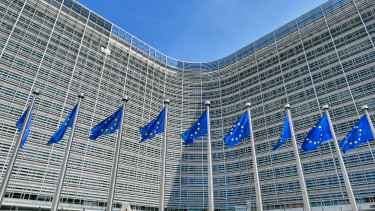EU exports to Vietnam will be taxed less as of tomorrow

Doing business in Vietnam will also become easier for European companies: they will now be able to invest and pitch for government contracts with equal chances to their local competitors.
Under the new agreement, the economic benefits go hand in hand with guarantees of respect for labour rights, environment protection and the Paris Agreement on climate, through strong, legally binding and enforceable provisions on sustainable development.
Vietnam is now part of a club of 77 countries doing trade with the EU under bilaterally agreed preferential conditions
, said Commissioner for Trade, Phil Hogan.
The EU-Vietnam agreement is the most comprehensive trade agreement the EU has concluded with a developing country. 65% of duties on EU exports to Vietnam will be eliminated at entry into force, with the remainder gradually removed over a 10-year period. EU duties on imports from Vietnam will be eliminated progressively over a 7-year period. This asymmetric approach takes into account the fact that Vietnam is a developing country.
However, many important EU export products, such as pharmaceuticals, chemicals or machinery will already enjoy duty free import conditions as of entry into force. Agri-food products like beef or olive oil will face no tariffs in three years, while dairy, fruit and vegetables in maximum five years.
The agreement will remove tariffs on a range of key EU export products:
- Almost all machinery and appliances will be fully tariff-free at entry into force, and the rest after 5 years. Current duties are up to 35%.
- Motorcycles with engines larger than 150 cc will see tariffs fully removed after 7 years (current duty is 75%) and cars after 10 years (down from 78%)
- Car parts will be duty free after 7 years (current duties are up to 32%).
- Roughly half of EU pharmaceuticals exports will be duty free at entry into force and the rest after 7 years (currently facing duties of up to 8%).
- All textile fabric exports will see their duties removed at entry into force (currently with a tariff of 12%).
- Close to 70% of EU chemicals exports will be duty free at entry into force (current duties up to 5%) and the rest after 3, 5 or, respectively, 7 years (current tariffs up to 25%).
- Wines and spirits will be fully tariff-free after 7 years (down from tariffs of 50% and 48% respectively)
- Frozen pork meat will be duty free after 7 years, beef after 3 years, dairy products after a maximum of 5 years and food preparations after a maximum of 7 years.
- Tariffs on chicken will be progressively reduced to 0% in the next 10 years.
For sensitive agricultural products, the EU will not open its market up to Vietnamese imports completely.
Quotas will limit the quantity that can enter the EU duty-free. This includes rice, sweet corn, garlic, mushrooms, eggs, sugar and high-sugar-containing products, manioc starch, other modified starches, ethanol, surimi and canned tuna.
Comprehensive provisions on sanitary and phytosanitary cooperation will allow for improving market access for EU firms via more transparent and quick procedures.
It also contains specific provisions to address regulatory barriers for EU car exports and grants protection from imitation for 169 traditional European food and drink products (like Roquefort cheese, Porto and Jerez wines, Irish Cream spirit or Prosciutto di Parma ham) recognised as Geographical Indications.
At the same time, the trade agreement expresses a strong commitment of both sides to environment and social rights. It sets high standards of labour, environmental and consumer protection and ensures that there is no 'race to the bottom' to promote trade or attract investment.
Under the agreement, the two parties have committed to
- ratify and implement the eight fundamental Conventions of International Labour Organization (ILO), and respect, promote and effectively implement the principles of the ILO concerning fundamental rights at work;
- implement the Paris Agreement, as well as other international environmental agreements, and act in favour of the conservation and sustainable management of wildlife, biodiversity, forestry and fisheries; and
- involve independent civil society in monitoring the implementation of these commitments by both sides.
Vietnam has already made progress on these commitments by ratifying in June 2019 ILO Convention 98 on collective bargaining and in June 2020 ILO Convention 105 on forced labour. It also adopted a revised Labour Code in November 2019 and confirmed that it would ratify the one remaining fundamental ILO Convention on forced labour by 2023.
The entry into force of the trade agreement has been preceded by its approval by EU Member States in the Council and its signature in June 2019, and the European Parliament's approval in February 2020.
Background
Vietnam is the EU's second largest trading partner in the Association of Southeast Asian Nations (ASEAN) after Singapore, with trade in goods worth €45.5 billion in 2019 and trade in services of some €4 billion (2018).
The EU's main exports to Vietnam are high-tech products, including electrical machinery and equipment, aircrafts, vehicles, and pharmaceutical products. Vietnam's main exports to the EU are electronic products, footwear, textiles and clothing, as well as coffee, rice, seafood, and furniture.
With a total foreign direct investment stock of €7.4 billion (2018), the EU is one of the largest foreign investors in Vietnam. Most EU investments are in industrial processing and manufacturing.
The agreement with Vietnam is the second trade agreement the EU has concluded with an ASEAN member state, following the recent agreement with Singapore. It represents an important milestone in the EU's engagement with Asia, adding to the already existing agreements with Japan and Republic of Korea.
EU-Vietnam trade agreement - dedicated website
Cover photo: Getty Images








